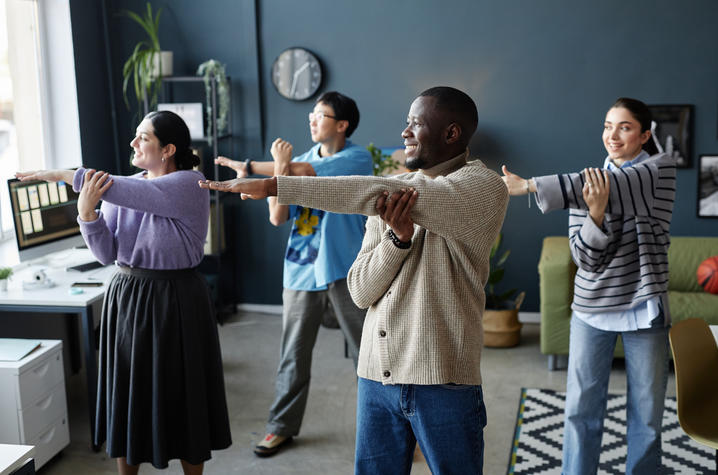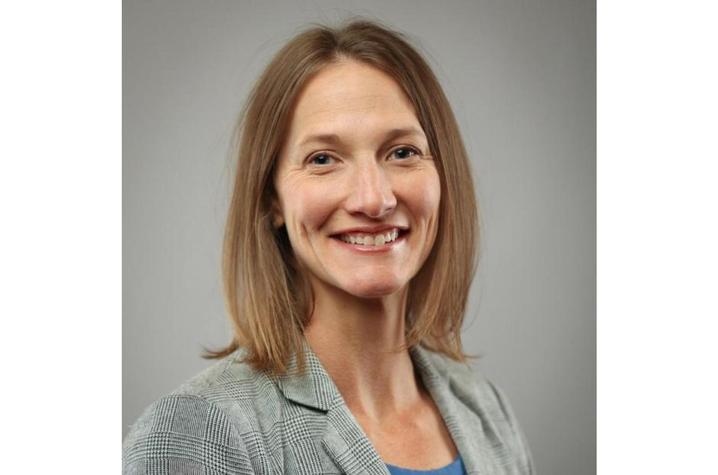Why moving your body every day matters
The University of Kentucky Public Relations & Strategic Communications Office provides a weekly health column available for use and reprint by news media. This week’s column is by Dee Dlugonski, Ph.D., director of the Active Girls Healthy Women Program in the Sports Medicine Research Institute and an associate professor in the Department of Athletic Training & Clinical Nutrition in the College of Health Sciences.
LEXINGTON, Ky. (Nov. 10, 2025) — In today’s busy world, long hours at a desk, in class or on the couch can easily add up. But research continues to show that regular movement — even in small amounts — has a big impact on both physical and mental health.
Movement doesn’t have to mean a trip to the gym — it’s about finding ways to move more throughout your day and creating habits that keep your body strong and your mind energized.
The benefits of daily movement
Regular physical activity boosts cardiovascular health, strengthens muscles and bones and improves flexibility and balance. It also plays a key role in preventing chronic diseases such as diabetes, heart disease and obesity.
But the benefits go beyond the physical. Movement helps regulate mood,reduce stress and improve attention and memory. Even brief activity breaks during the day can improve focus, creativity and overall mental well-being.
Incorporating movement can offset the negative effects of prolonged inactivity. Our bodies were made to move, even five minutes of stretching or walking each hour makes a difference.
As we go into the colder months of the year, it’s easy to spend much of the day sitting. Here are some ways to continue adding movement into your daily routines.
Simple ways to add more activity
- Take short movement breaks. Set a timer to stand up, stretch or walk for a few minutes every hour.
- Walk when you can. Park farther away, take the stairs instead of the elevator or hold walking meetings.
- Sneak in strength work. Bodyweight exercises like squats, lunges and planks can be done anywhere. Quick bodyweight exercises can even be completed in the comfort of your own home.
- Make it social. Join a fitness class, intramural team or walking group to stay motivated and accountable.
- Find what you enjoy. Dancing, gardening, yoga — any activity that gets you moving counts.
The key is consistency. It’s recommended for adults to get 150 minutes of moderate-intensity activity each week, but every bit adds up and some activity is better than none.
Start small — and keep moving
If you’ve been inactive for a while, begin with short sessions and gradually build up. Focus more on progress, not perfection.
Whether it’s taking a quick walk around the building, stretching between meetings or dancing in your kitchen, moving your body daily is one of the simplest — and most powerful — ways to support your health.
UK HealthCare is the hospitals and clinics of the University of Kentucky. But it is so much more. It is more than 10,000 dedicated health care professionals committed to providing advanced subspecialty care for the most critically injured and ill patients from the Commonwealth and beyond. It also is the home of the state’s only National Cancer Institute (NCI)-designated Comprehensive Cancer Center, a Level IV Neonatal Intensive Care Unit that cares for the tiniest and sickest newborns and the region’s only Level 1 trauma center.
As an academic research institution, we are continuously pursuing the next generation of cures, treatments, protocols and policies. Our discoveries have the potential to change what’s medically possible within our lifetimes. Our educators and thought leaders are transforming the health care landscape as our six health professions colleges teach the next generation of doctors, nurses, pharmacists and other health care professionals, spreading the highest standards of care. UK HealthCare is the power of advanced medicine committed to creating a healthier Kentucky, now and for generations to come.






